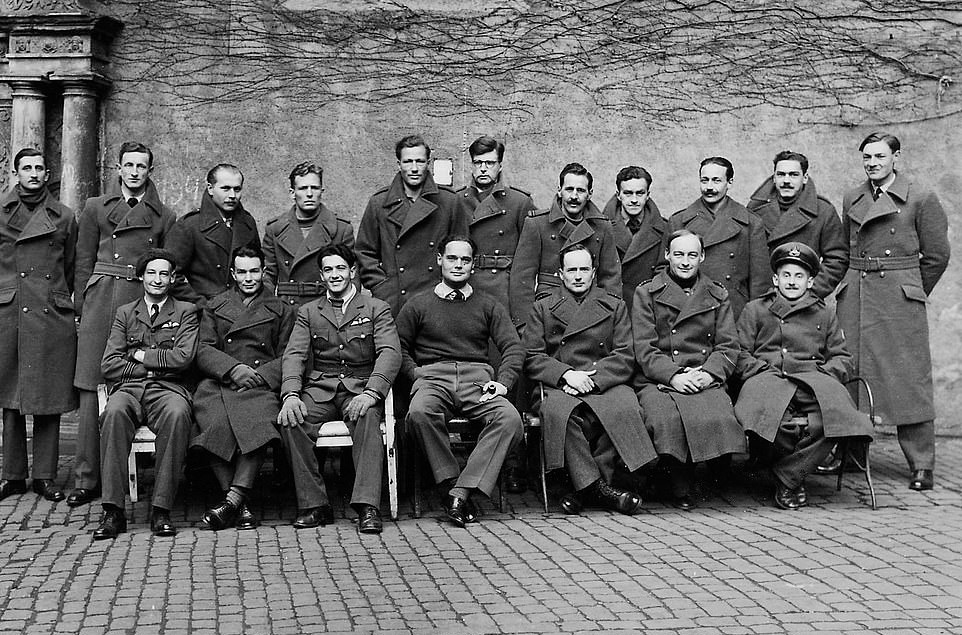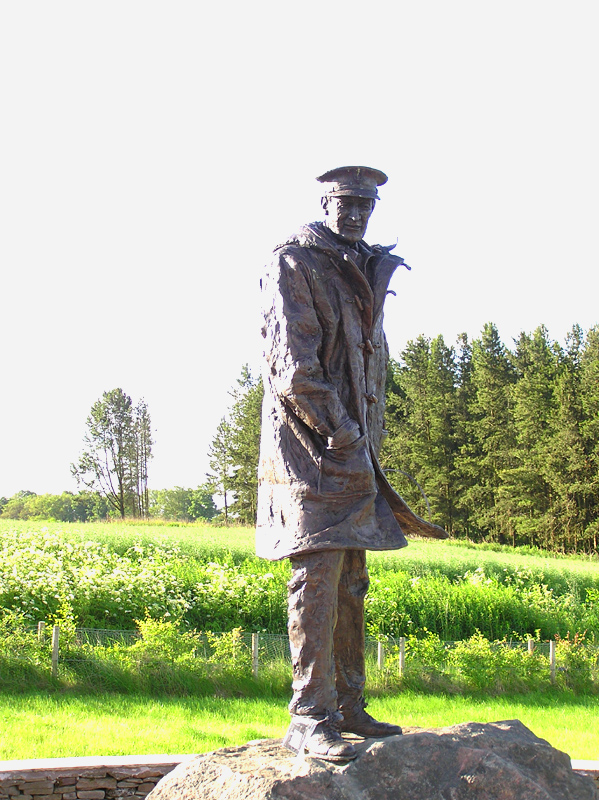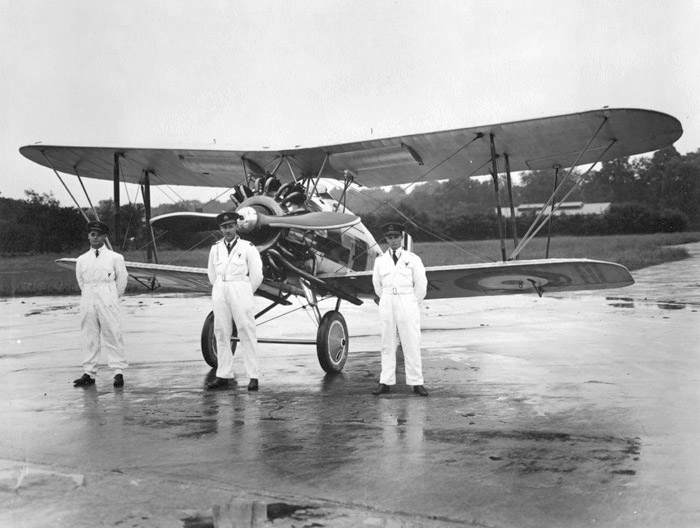|
Attempts To Escape Oflag IV-C
Prisoners made numerous attempts to escape from Oflag IV-C, one of the most famous German Army prisoner-of-war camps for officers in World War II. Between 30 and 36 men succeeded in their attempts - exact numbers differ between German and Allied sources. The camp was situated in Colditz Castle, perched on a cliff overlooking the town of Colditz in Saxony. The German Army made Colditz a ''Sonderlager'' (high-security prison camp), the only one of its type within Germany. Field Marshal Hermann Göring even declared Colditz "escape-proof." Yet despite this audacious claim, there were multiple escapes by British, Canadian, French, Polish, Dutch, and Belgian inmates. Despite some misapprehensions to the contrary, Colditz Castle was not used as a prisoner of war camp in World War I. Methods and equipment Prisoners contrived a number of methods to escape. They duplicated keys to doors, made copies of maps, forged ''Ausweise'' ( identity papers), and manufactured their own tools. ... [...More Info...] [...Related Items...] OR: [Wikipedia] [Google] [Baidu] |
Oflag IV-C
Oflag IV-C, often referred to by its location at Colditz Castle, overlooking Colditz, Saxony, was one of the most noted German Army prisoner-of-war camps for captured enemy officers during World War II; ''Oflag'' is a shortening of ''Offizierslager'', meaning "officers' camp". Colditz Castle This thousand-year-old fortress was in the heart of Hitler's Reich, from any frontier not under Nazi control. Its outer walls were seven feet (two metres) thick and the cliff on which it was built had a sheer drop of two hundred and fifty feet (75metres) to the River Mulde below. Timeline The first prisoners arrived in November 1939; they were 140 Polish officers from the September Campaign who were regarded as escape risks. Most of them were later transferred to other Oflags. In October 1940, Donald Middleton, Keith Milne, and Howard Wardle (a Canadian who joined the RAF just before the war) became the first British prisoners at Colditz. On 7November, six British officers, the " Laufe ... [...More Info...] [...Related Items...] OR: [Wikipedia] [Google] [Baidu] |
Identity Document
An identity document (also called ID or colloquially as papers) is any document that may be used to prove a person's identity. If issued in a small, standard credit card size form, it is usually called an identity card (IC, ID card, citizen card), or passport card. Some countries issue formal identity documents, as national identification cards that may be compulsory or non-compulsory, while others may require identity verification using regional identification or informal documents. When the identity document incorporates a person's photograph, it may be called photo ID. In the absence of a formal identity document, a driver's license may be accepted in many countries for identity verification. Some countries do not accept driver's licenses for identification, often because in those countries they do not expire as documents and can be old or easily forged. Most countries accept passports as a form of identification. Some countries require all people to have an identity d ... [...More Info...] [...Related Items...] OR: [Wikipedia] [Google] [Baidu] |
Francis Steinmetz
Francis Steinmetz (20 September 1914 – 2 January 2006) was an officer in the Royal Netherlands Navy who escaped from Oflag IV-C, Colditz Castle, a German POW camp, during World War II, making a "home run" to safety. Early life Steinmetz was born 20 September 1914 in Batavia, Dutch East Indies and entered the Dutch Royal Navy in September 1932. After periods on various boats he was posted to the submarine service. He was captured in 1940 in Amsterdam by advancing German forces. Initially sent to a prison camp at Soest, Germany, Steinmetz was then transferred to a POW camp Silesia. He refused to sign a German parole saying he would refrain from any hostile act towards Germany and was transferred to Sonderlager IVC, at Colditz Castle. Escaping Colditz At Colditz all Dutch escapes were coordinated by the Dutch escape officer Captain Machiel van den Heuvel, known as "Vandy" by the British. Van den Heuvel quickly recognised the possibilities of the exercise park and soon had hi ... [...More Info...] [...Related Items...] OR: [Wikipedia] [Google] [Baidu] |
Soest, Germany
Soest (, as if it were 'Sohst'; Westphalian: ''Saust'') is a city in North Rhine-Westphalia, Germany. It is the capital of the Soest district. Geography Soest is located along the '' Hellweg'' road, approximately south-west of Lippstadt, roughly east of Dortmund and roughly west of Paderborn. Neighbouring places * Bad Sassendorf *Ense *Lippetal *Möhnesee *Werl * Welver Legends The Norwegian Þiðrekssaga from the 13th century, a series of tales about the Gothic King Theoderic the Great, identifies Soest (called Susat) as the capital of Attila's (?–453) Hunnic Empire. The actual location of Attila's capital has not been determined. History Owing to its fertile soil (predominantly brown silty clay loam), the area around Soest is believed to have been settled well before the village is first mentioned in the ''Dagobertsche Schenkung'' in 836. Excavations in recent decades have uncovered signs of habitation stretching back more than 4000 years. During the 11th and 12th ... [...More Info...] [...Related Items...] OR: [Wikipedia] [Google] [Baidu] |
Hans Larive
Etienne Henri "Hans" Larive, MWO, DSC and bar, (23 September 1915 – 28 December 1984) was a Dutch naval officer during World War II. He escaped from the prisoner of war camp Oflag IV-C at Colditz Castle in 1941, and spent the rest of the war in England serving aboard Motor Torpedo Boats. He later wrote his memoir ''Vannacht varen de Hollanders'' (1950), which was republished translated into English as ''The Man Who Came in From Colditz'' (1975) – a pun on the best-selling novel '' The Spy Who Came in from the Cold''. Early life Larive was born on 23 September 1915 in Singapore. He entered the Royal Netherlands Naval College (KIM) in 1934, graduating in 1937, and gaining his commission as '' Luitenant ter Zee (3de klasse)'' on 13 August that year. He was promoted to '' Luitenant ter Zee (2de klasse)'' on 13 August 1939. World War II In May 1940, just a few days before the Germans attacked Holland, he returned from his tour of duty in the Dutch East Indies as Navigation O ... [...More Info...] [...Related Items...] OR: [Wikipedia] [Google] [Baidu] |
Singen
Singen ( Low Alemannic: ''Singe'') is an industrial city in the very south of Baden-Württemberg in southern Germany and just north of the German-Swiss border. Location Singen is an industrial city situated in the very south of Baden-Württemberg in Germany close to Lake Constance just north of the German-Swiss border and is the most important city in the Hegau area. Landmarks The most famous landmark of Singen is Hohentwiel, a volcanic stub on which there are the ruins of a fortress destroyed by French troops during the Napoleonic Wars. World War II 'Singen route' Singen is notable in military history for the Singen route in World War II. This route into Switzerland was discovered by Dutch naval lieutenant Hans Larive in 1940 on his first escape attempt from an Oflag (prisoner's camp for officers) in Soest. After being captured at the Swiss border near Singen, the interrogating Gestapo officer was so confident the war would soon be won by Germany that he told Larive the safe ... [...More Info...] [...Related Items...] OR: [Wikipedia] [Google] [Baidu] |
David Stirling
Sir Archibald David Stirling (15 November 1915 – 4 November 1990) was a Scottish officer in the British army, a mountaineer, and the founder and creator of the Special Air Service (SAS). He saw active service during the Second World War. Early life Stirling was born at his family's ancestral home, Keir House, in the parish of Lecropt, Perthshire on 15 November 1915. He was the son of Brigadier-General Archibald Stirling, of Keir, and Margaret Fraser, daughter of Simon Fraser, the Lord Lovat (a descendant of Charles II). Simon Fraser, 15th Lord Lovat was a first cousin. His paternal grandparents were Sir William Stirling-Maxwell, 9th Baronet and Lady Anna Maria Leslie-Melville. Stirling was educated at the Catholic boarding school Ampleforth College, but attended only a year at Trinity College, Cambridge before departing to Paris to become an artist. At with an athletic figure, Stirling was training to climb Mount Everest when the Second World War broke out. Secon ... [...More Info...] [...Related Items...] OR: [Wikipedia] [Google] [Baidu] |
Chocolate
Chocolate is a food made from roasted and ground cacao seed kernels that is available as a liquid, solid, or paste, either on its own or as a flavoring agent in other foods. Cacao has been consumed in some form since at least the Olmec civilization (19th-11th century BCE), and the majority of Mesoamerican people ─ including the Maya and Aztecs ─ made chocolate beverages. The seeds of the cacao tree have an intense bitter taste and must be fermented to develop the flavor. After fermentation, the seeds are dried, cleaned, and roasted. The shell is removed to produce cocoa nibs, which are then ground to cocoa mass, unadulterated chocolate in rough form. Once the cocoa mass is liquefied by heating, it is called chocolate liquor. The liquor may also be cooled and processed into its two components: cocoa solids and cocoa butter. Baking chocolate, also called bitter chocolate, contains cocoa solids and cocoa butter in varying proportions, without any added sugar. Powder ... [...More Info...] [...Related Items...] OR: [Wikipedia] [Google] [Baidu] |
Douglas Bader
Group Captain Sir Douglas Robert Steuart Bader, (; 21 February 1910 – 5 September 1982) was a Royal Air Force flying ace during the Second World War. He was credited with 22 aerial victories, four shared victories, six probables, one shared probable and 11 enemy aircraft damaged. Bader joined the RAF in 1928, and was commissioned in 1930. In December 1931, while attempting some aerobatics, he crashed and lost both his legs. Having been on the brink of death, he recovered, retook flight training, passed his check flights and then requested reactivation as a pilot. Although there were no regulations applicable to his situation, he was retired against his will on medical grounds. After the outbreak of the Second World War in 1939, however, Douglas Bader returned to the RAF and was accepted as a pilot. He scored his first victories over Dunkirk during the Battle of France in 1940. He then took part in the Battle of Britain and became a friend and supporter of Air Vice Marshal Tr ... [...More Info...] [...Related Items...] OR: [Wikipedia] [Google] [Baidu] |
Red Cross Parcel
Red Cross parcel refers to packages containing mostly food, tobacco and personal hygiene items sent by the International Association of the Red Cross to prisoners of war during the First and Second World Wars, as well as at other times. It can also refer to medical parcels and so-called "release parcels" provided during World War II. The Red Cross arranged them in accordance with the provisions of the Geneva Convention of 1929. During World War II these packages augmented the often-meager and deficient diets in the POW camps, contributing greatly to prisoner survival and an increase in morale. Modern Red Cross food parcels provide basic food and sanitary needs for persons affected by natural disasters, wars, political upheavals or similar events. More recent catastrophes involving delivery of Red Cross parcels include events in Georgia, Thailand and Great Britain. World War I The Australian Red Cross reported dispatching a total of 395,695 food parcels and 36,339 clothi ... [...More Info...] [...Related Items...] OR: [Wikipedia] [Google] [Baidu] |
Black Market
A black market, underground economy, or shadow economy is a clandestine market or series of transactions that has some aspect of illegality or is characterized by noncompliance with an institutional set of rules. If the rule defines the set of goods and services whose production and distribution is prohibited by law, non-compliance with the rule constitutes a black market trade since the transaction itself is illegal. Parties engaging in the production or distribution of prohibited goods and services are members of the . Examples include the illegal drug trade, prostitution (where prohibited), illegal currency transactions, and human trafficking. Violations of the tax code involving income tax evasion in the . Because tax evasion or participation in a black market activity is illegal, participants attempt to hide their behavior from the government or regulatory authority. Cash is the preferred medium of exchange in illegal transactions since cash transactions are less- ... [...More Info...] [...Related Items...] OR: [Wikipedia] [Google] [Baidu] |
Red Cross
The International Red Cross and Red Crescent Movement is a humanitarian movement with approximately 97 million volunteers, members and staff worldwide. It was founded to protect human life and health, to ensure respect for all human beings, and to prevent and alleviate human suffering. Within it there are three distinct organisations that are legally independent from each other, but are united within the movement through common basic principles, objectives, symbols, statutes and governing organisations. History Foundation Until the middle of the nineteenth century, there were no organized or well-established army nursing systems for casualties, nor safe or protected institutions, to accommodate and treat those who were wounded on the battlefield. A devout Calvinist, the Swiss businessman Jean-Henri Dunant traveled to Italy to meet then-French emperor Napoleon III in June 1859 with the intention of discussing difficulties in conducting business in Algeria, which at that time w ... [...More Info...] [...Related Items...] OR: [Wikipedia] [Google] [Baidu] |









